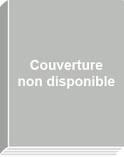« Sharples McAndrew et al 2012 » : différence entre les versions
(Page créée avec « Catégorie:livre <!-- La catégorie livre est une sous-catégorie de référence. Elle inclut les ouvrages publiés chez un éditeur. Les rapports, thèses et mémoires ... ») |
|||
| (2 versions intermédiaires par le même utilisateur non affichées) | |||
| Ligne 56 : | Ligne 56 : | ||
<!-- Copier / coller ici le quart de couverture à partir d'internet --> | <!-- Copier / coller ici le quart de couverture à partir d'internet --> | ||
This series of reports explores | |||
new forms of teaching, learning | |||
and assessment for an interactive | |||
world, to guide teachers and | |||
policy makers in productive | |||
innovation. The first report | |||
proposes ten innovations that are | |||
already in currency but have not | |||
yet had a profound influence on | |||
education. To produce it, a group | |||
of academics at the Institute | |||
of Educational Technology in | |||
The Open University proposed | |||
a long list of new educational | |||
terms, theories, and practices. | |||
We then pared these down to | |||
ten that have the potential to | |||
provoke major shifts in educational | |||
practice, particularly in postschool | |||
education. We have not | |||
deliberately excluded school | |||
education, but that is not our area | |||
of expertise. Lastly, we drew on | |||
published and unpublished writings | |||
to compile the ten sketches of new | |||
pedagogies that might transform | |||
education. These are summarised | |||
below in rough order of immediacy | |||
and timescale to widespread | |||
implementation. | |||
<br> | |||
== 5. Table des matières (facultatif) == | == 5. Table des matières (facultatif) == | ||
* Executive summary 3 | * Executive summary 3 | ||
* Introduction 6 | * Introduction 6 | ||
* New pedagogy for e- | * New pedagogy for [[e-book]]s - Innovative ways of teaching and learning with next-generation e-books 8 | ||
* Publisher-led short courses - Publishers producing commercial short courses for leisure and professional development 11 | * Publisher-led short courses - Publishers producing commercial short courses for leisure and professional development 11 | ||
* Assessment for learning - Assessment that supports the learning process through diagnostic feedback 13 | * Assessment for learning - Assessment that supports the learning process through diagnostic feedback 13 | ||
* Badges to accredit learning - Open framework for gaining recognition of skills and achievements 16 | * Badges to accredit learning - Open framework for gaining recognition of skills and achievements 16 | ||
* | * [[MOOC]]s - Massive open online courses 19 | ||
* Rebirth of academic publishing - New forms of open scholarly publishing 21 | * Rebirth of academic publishing - New forms of open scholarly publishing 21 | ||
* Seamless learning - Connecting learning across settings, technologies and activities 24 | * Seamless learning - Connecting learning across settings, technologies and activities 24 | ||
| Ligne 76 : | Ligne 106 : | ||
<br> | <br> | ||
== 6. Résumé personnel (facultatif) == | == 6. Résumé personnel (facultatif) == | ||
Dernière version du 27 octobre 2012 à 16:32
Innovating Pedagogy 2012
1. Références
- Référence complète APA : Mike Sharples, Patrick McAndrew, Martin Weller, Rebecca Ferguson,
Elizabeth FitzGerald, Tony Hirst, Yishay Mor, Mark Gaved, Denise Whitelock (2012). Innovating Pedagogy 2012 - Exploring new forms of teaching, learning and assessment, to guide educators and policy makers. Open University Innovation Report 1
- Auteur(s) : Mike Sharples, Patrick McAndrew, Martin Weller, Rebecca Ferguson, Elizabeth FitzGerald, Tony Hirst, Yishay Mor, Mark Gaved, Denise Whitelock
2. Copies
- Copie électronique en ligne : http://www.open.ac.uk/personalpages/mike.sharples/Reports/Innovating_Pedagogy_report_July_2012.pdf
- Copie électronique locale :
- Copie physique CP :
- Copie physique en bibliothèque :
3. Mots-clés
4. Quart de couverture
This series of reports explores new forms of teaching, learning and assessment for an interactive world, to guide teachers and policy makers in productive innovation. The first report proposes ten innovations that are already in currency but have not yet had a profound influence on education. To produce it, a group of academics at the Institute of Educational Technology in The Open University proposed a long list of new educational terms, theories, and practices. We then pared these down to ten that have the potential to provoke major shifts in educational practice, particularly in postschool education. We have not deliberately excluded school education, but that is not our area of expertise. Lastly, we drew on published and unpublished writings to compile the ten sketches of new pedagogies that might transform education. These are summarised below in rough order of immediacy and timescale to widespread implementation.
5. Table des matières (facultatif)
- Executive summary 3
- Introduction 6
- New pedagogy for e-books - Innovative ways of teaching and learning with next-generation e-books 8
- Publisher-led short courses - Publishers producing commercial short courses for leisure and professional development 11
- Assessment for learning - Assessment that supports the learning process through diagnostic feedback 13
- Badges to accredit learning - Open framework for gaining recognition of skills and achievements 16
- MOOCs - Massive open online courses 19
- Rebirth of academic publishing - New forms of open scholarly publishing 21
- Seamless learning - Connecting learning across settings, technologies and activities 24
- Learning analytics - Data-driven analysis of learning activities and environments 27
- Personal inquiry learning - Learning through collaborative inquiry and active investigation 30
- Rhizomatic learning - Knowledge constructed by self-aware communities adapting to environmental conditions 33
6. Résumé personnel (facultatif)
